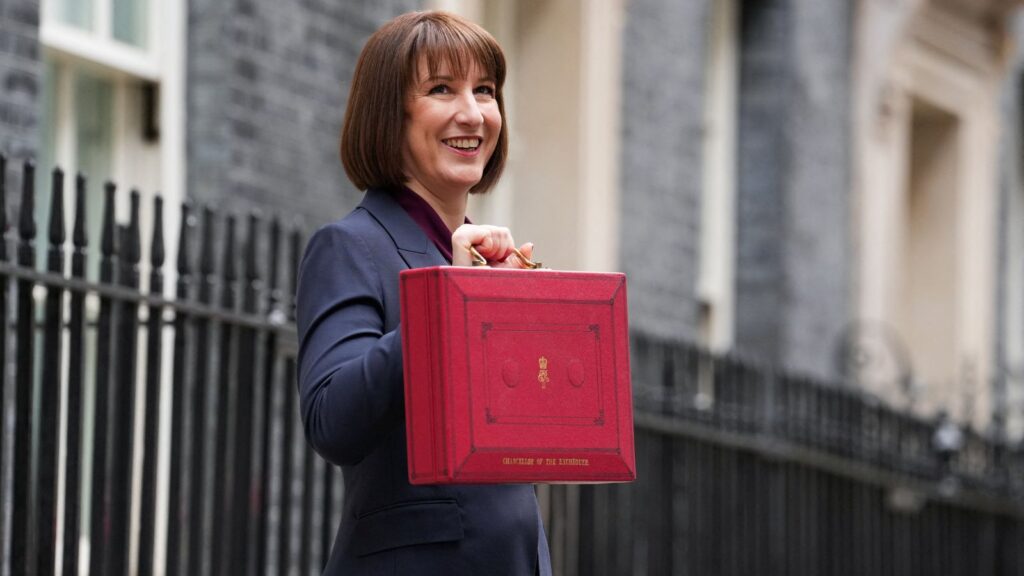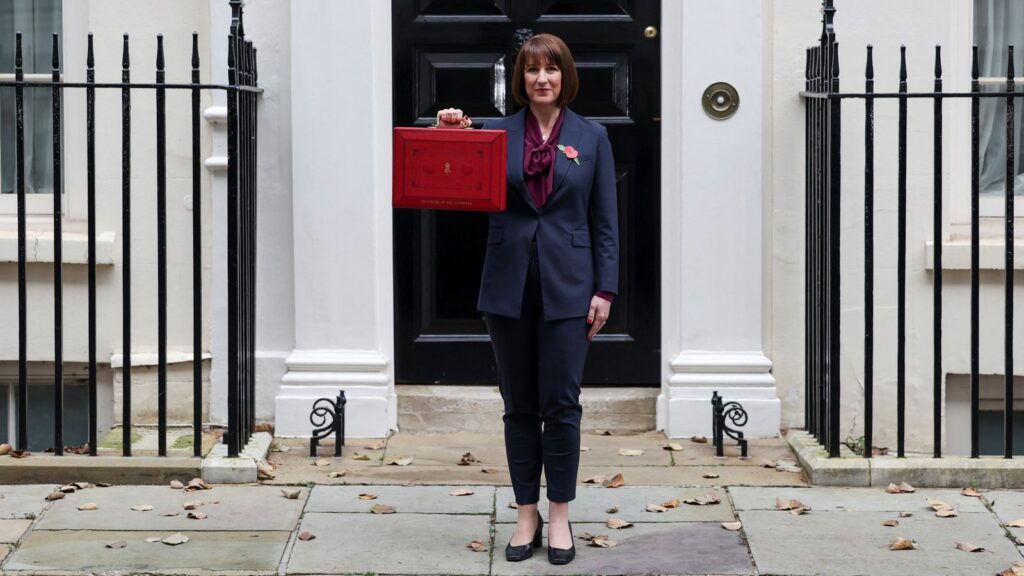Labour’s first budget since 2010 includes £40bn worth of tax rises and spending cuts across government – as well as promises to invest in infrastructure and support working people with higher wages.

The Budget will see a £40 billion tax rise, most of which will be paid for by a £25 billion increase in employers’ National Insurance contributions, the Chancellor said at the Budget.
Rachel Reeves said the amount that businesses pay in employee National Insurance contributions will rise from 13.8% to 15% from April 2025, and the current annual threshold will be reduced from £9,100 to £5,000. She described this as a “difficult decision”.
The Office for Budget Responsibility (OBR), which monitors the government’s spending plans and performance, said most of the burden of the tax hikes would be passed on to workers in the form of lower wages and to consumers in the form of higher prices.
It is estimated that the increase in social security contributions will reduce the average working hour by the equivalent of 50,000 hours.
The £40 billion tax rise is thought to be the biggest budget increase since John Major’s 1993 government and will more than fill the £22 billion “black hole” left by Labour’s Conservative government.
Ms Reeves also announced that the current freeze on income tax thresholds will end in 2028/29 and will then rise in line with inflation.
The previous Conservative government froze the thresholds. This means more people will pay higher tax as their salaries increase and they move into higher tax brackets.
The OBR said the tax burden will reach a “record high of 38% of GDP by 2029/30” and expects inflation and interest rates to rise further as a result of the Budget.
Ms Reeves said a “line-by-line breakdown” of the black holes would be published and said it showed there were “hundreds of unfunded burdens in the exchequer” under the Conservative government.
She said she was “incredibly proud” to be the country’s first female prime minister, and argued a Labour government should “invest, invest, invest” and “put more money into people’s pockets”.
Other significant changes announced by the Prime Minister include:
Fuel duty will stay frozen next year and 5p cut to remain
• Capital gains tax lower rate will increase from 10% to 18%, higher rate from 20% to 24%
• Residential property capital gains tax will remain at 18% and 24%
• Two “permanently lower” business tax rates for retail, hospitality and leisure properties
• 40% relief on business rates in 2025-26 up to a £110,000 cap
• Inheritance tax thresholds frozen until 2030
• Higher rate stamp duty for second homes increased to 5% from Thursday
• Alcohol duty rates on non-draught drinks to increase in line with RPI from February
• Draught alcohol duty cut by 1.7% – 1p off a pint
• HS2 will go to Euston in central London
• Every government department must make 2% cuts by next year
• £22.6bn extra for the NHS’ day-to-day health budget, £3.1bn more for the capital budget
• £2.3bn for schools to hire teachers next year, £6.7bn for the schools capital budget
• £2.9bn for Armed Forces next year
• £500m increase in road budgets next year.

The Prime Minister began her Budget speech by saying the country had voted for “change” and “good leadership” in the July 4 general election, before attacking the “irresponsibility” of the previous Conservative government.
“We must restore economic stability and put the last 14 years behind us,” she said.
Ms Reeves added: “The Opposition has failed our country. Their austerity policies have ruined our National Health Service. The British people have inherited their failures.”
“They called an election to avoid difficult decisions,” she continued.
The Prime Minister outlined that economic growth and the NHS were her priorities and promised to put an end to “short-term thinking”.
Labour has pledged to maintain the triple pension system, under which the state pension is increased annually by the greater of 2%, inflation or earnings growth.
This means a 4.1% rise next year, she said, meaning more than 12 million pensioners will see an increase in income of up to £470.
It also provided compensation of £11.8 billion to victims of the infected blood scandal and £1.8 billion to victims of the Post Office IT scandal.
Ahead of Labour’s first Budget since Alistair Darling’s 2010 government, Labour had promised in its election manifesto that it would not increase income tax, national insurance or VAT for “working people”, and Mr Reeves said they had kept to that.
In the weeks leading up to the Budget, various ministers have debated who exactly should be counted as a worker.,

A number of plans have been leaked or announced in the run up to the Budget, including:
• All private school fees will include VAT from January, business tax relief to be removed from private schools in April
• An increase on employers’ national insurance – but they did not say by how much
• A change to the fiscal rules – the way in which the government borrows and pays back money – in order to allow for greater investment spending
• An increase to the bus fare cap by 50% to £3
• A boost to the national living wage, with the minimum someone aged 21 and over can be paid increasing by 6.7% to £12.21 an hour
• The national minimum wage, for 16 to 20-year-olds, will also increase – by 16.3% to £10 an hour.

